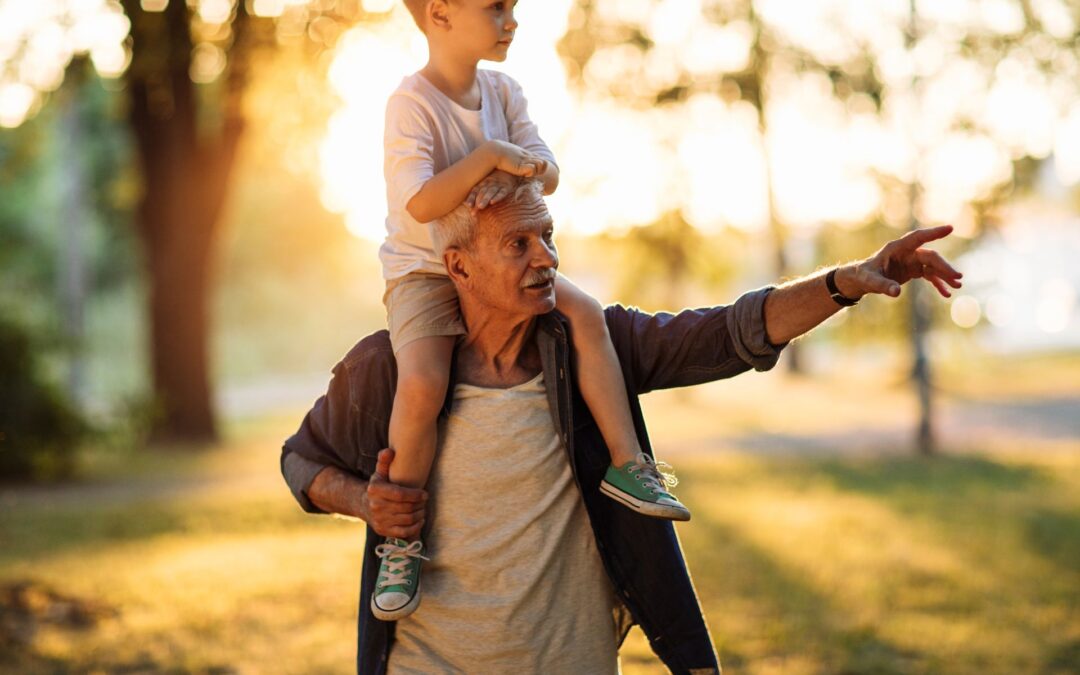Who wouldn’t want their kids and grandkids to be safe? As parents, and grandparents, we all want to do what we can to protect our kids from the unnecessary dangers of life in a fallen world.
But is their safety what we really want? Is it truly in their best interest to coddle them and keep them safe from the world?
We grandparents were the last of the ‘free range’ kids who didn’t live in a world of paranoid fear. We roamed our neighborhoods and communities generally unconcerned. Our mothers only wanted to know where we were going and when we’d be home. Terrorism, predators and school shootings were never on our minds.
Then photos of missing children began to appear on milk cartons and parents began to worry about their own children. Soon the reigns were pulled in as parents tried to keep their children safe. Schools began to ban certain foods, remove unsafe playground equipment. The Columbine school shooting lit up the news… and then two years later 911 launched a new reality.
I understand the fear and paranoia that exists in our world today. This isn’t Kansas anymore, and the world is a much more challenging place for parents and grandparents when it comes to our children. But have we gone too far? In our attempts to build a safe, comfortable world, are we creating paranoid, thin-skinned children who will not be equipped to face the world out there as adults?
For example, as a society we are constantly walking on egg-shells for fear of offending someone. Micro-aggressions, typically subtle and usually unintentional comments or actions (originally racially focused), have evolved to mean anything that anyone perceives to be discriminatory or offensive.
Trying to protect our children has now moved into protecting their self-esteem and personal sensitivies. If you were to ask an Asian American or Latino American, “Where were you born?”, it would likely be viewed as offensive because it implies they are not really American.
In an article in The Atlantic, Greg Lukianoff and Jonathan Haidt describe a 2013 sit-in by students at UCLA. The motivation? Apparently, an education professor noted one student’s incorrect capitalization of the word indigenous in her paper. “Lowercasing the capital I was an insult to the student and her ideology, the group claimed.”
In social media circles #discrimination and many other hashtags have become a way to punish anyone who dares to speak of something that falls outside the politically correct arena of acceptability. Critical thinking and discourse is discouraged in schools to protect students from being offended. As the authors above note, “the thin argument ‘I’m offended’ becomes an unbeatable trump card.”
So why is this important to grandparents and parents today? Because the truth is that life is hard, and our kids need to know that. Jesus said, “In this world you will have trouble. But take heart. I have overcome the world.” The apostle Paul challenged followers of Christ to embrace the fellowship of Christ’s suffering (Phil. 3:10-11) and to conduct ourselves in a manner worthy of the Gospel without being frightened in any way by those who oppose you (1:27-28). Which implies that he expected we would be opposed. Proverbs 12:16 declares, “A fool shows his annoyance at once, but a prudent man listens to advice.”
We may think it’s our job as parents and grandparents is make sure our children are always safe, but that’s a futile venture. We cannot keep them safe, and attempts to do so will only make things worse for them in the long run. Our role is to train them up in the way they should go and to not be afraid, for God is with them.
We must help them understand that life is difficult and risky, but Jesus has overcome the world. We are to show them that God is our Protector. They need to know that regardless of what trouble and suffering may come their way, He is their strength and refuge (Ps. 18), and because He is at my right hand, I will not be shaken (Ps. 16:8).
Our job is not to coddle or hover protectively over them. Our job is to show them how to cope with trouble and suffering in this world. They need to know there is no such thing as being safe from danger and trouble in a fallen world. They also need to know that their lives are in the hands of a God who is safe. Therefore, they can risk serving and loving in a broken world just as our Lord did.
Coddling doesn’t produce maturity or productivity. We must show them how to face the hardships of life with courage and perseverance because we trust and depend, not on safe circumstances, but on God.
Let your life show them that being a follower of Christ is not safe. In fact, it is dangerous. Nevertheless, for to me to live is Christ, and to die is gain (Phil. 1:21). That’s the safest reality I know.







0 Comments